IILM Holds Grand Convocation 2025; Dr. Vineet Joshi Highlights NEP’s Transformative Impact on Higher Education
TEN NEWS NETWORK
NEW DELHI News (16/11/2025): IILM Institute organized its Convocation Ceremony 2025 with great dignity, gratitude, and academic pride, celebrating the achievements of graduating students in the presence of distinguished leaders from academia, government, and industry. The event was graced by Dr. Vineet Joshi, Secretary, Department of Higher Education, Ministry of Education, Government of India, who delivered the Convocation Address.
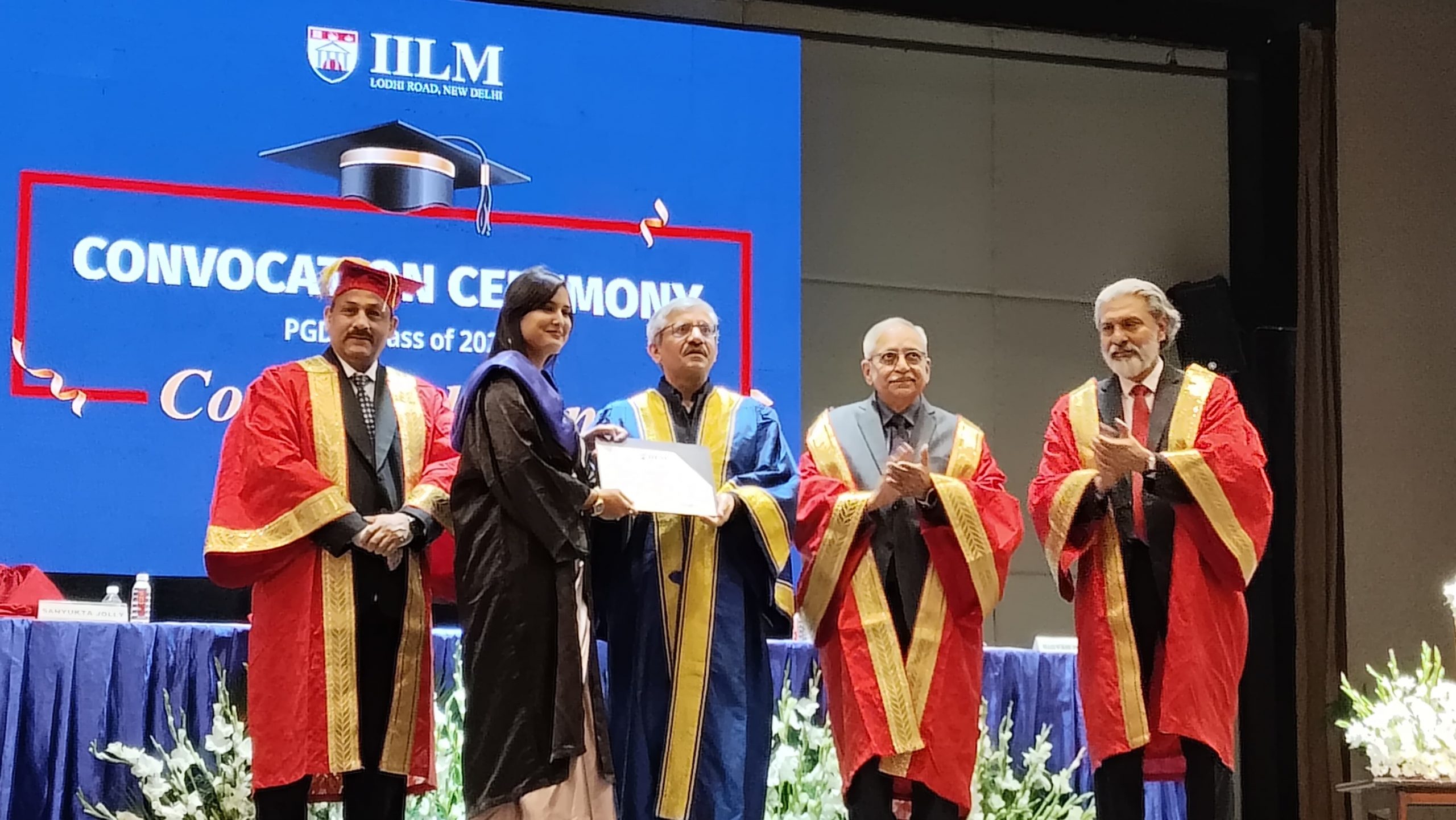
The ceremony commenced at 3:00 pm with the Saraswati Vandana and lighting of the lamp, followed by a welcome address from senior leaders of IILM.
Your Purpose Must Guide Your Leadership — Dr. Harivansh Chaturvedi
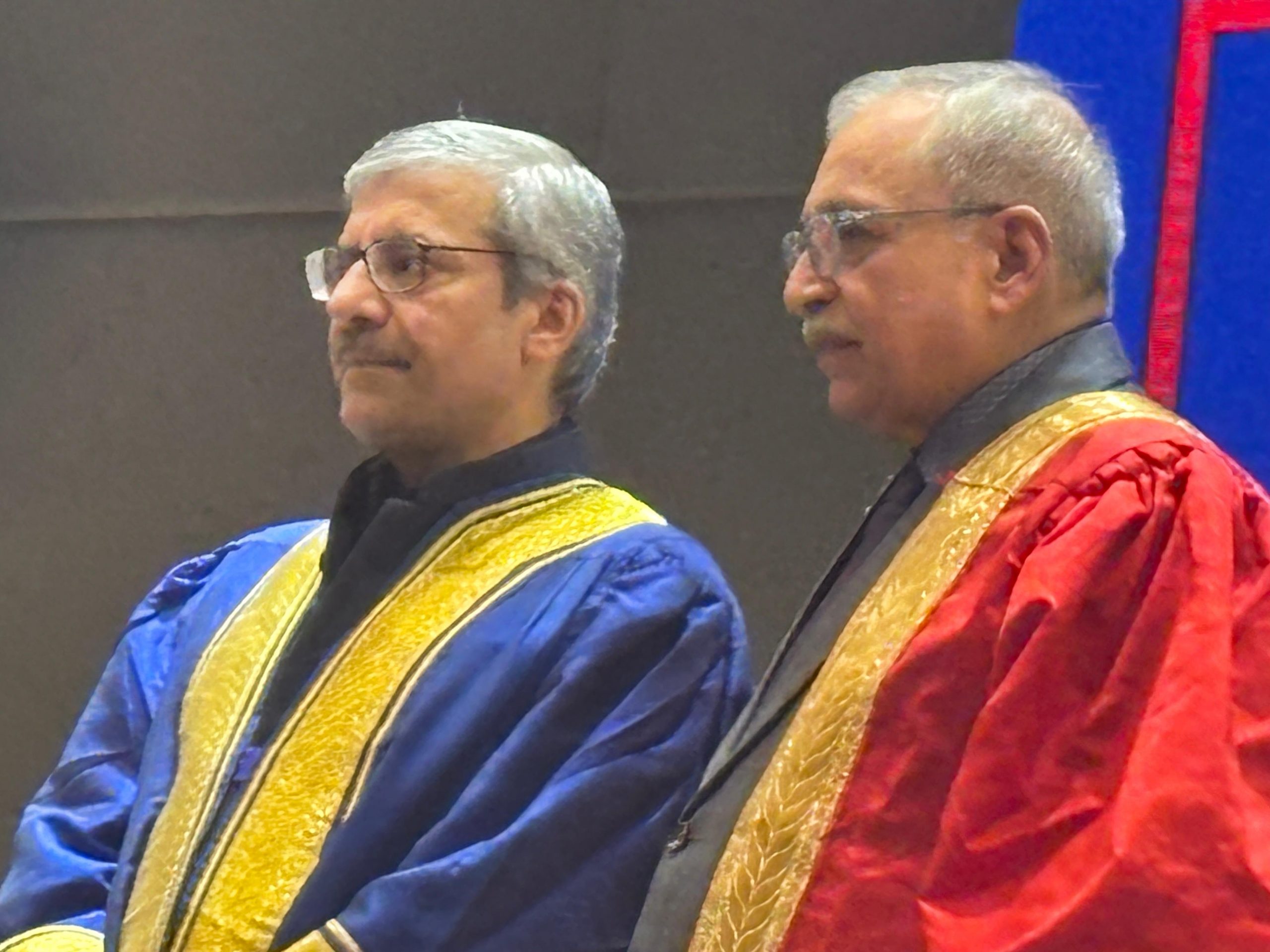
In his welcome address, Dr. Harivansh Chaturvedi, Director General of IILM, expressed deep pride in the graduating class of 2025. Welcoming the Chief Guest, founders, academic board members, industry leaders, and proud parents, he said, This convocation is a defining moment in the lives of our students. They have worked hard for two years, and many have already secured placements in corporates, family businesses, and start-ups.
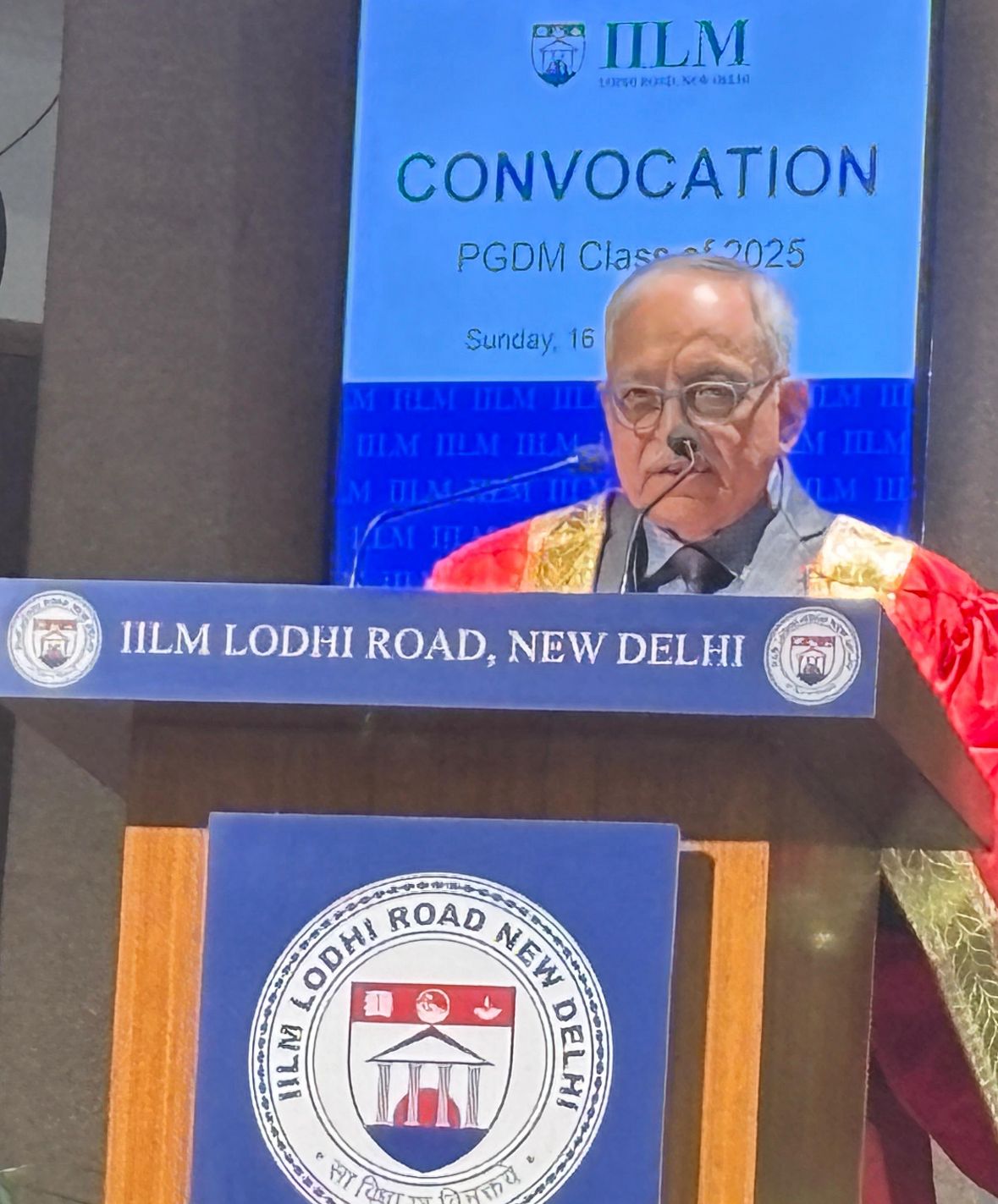
He praised Dr. Vineet Joshi’s leadership in India’s education reforms, noting his key roles in transforming CBSE, establishing the National Testing Agency, and implementing NEP 2020. Whatever reforms India has witnessed in the last 15 years in school and higher education, much credit goes to Dr. Vineet Joshi. His commitment to transparency, inclusion, and academic excellence continues to inspire institutions like ours.
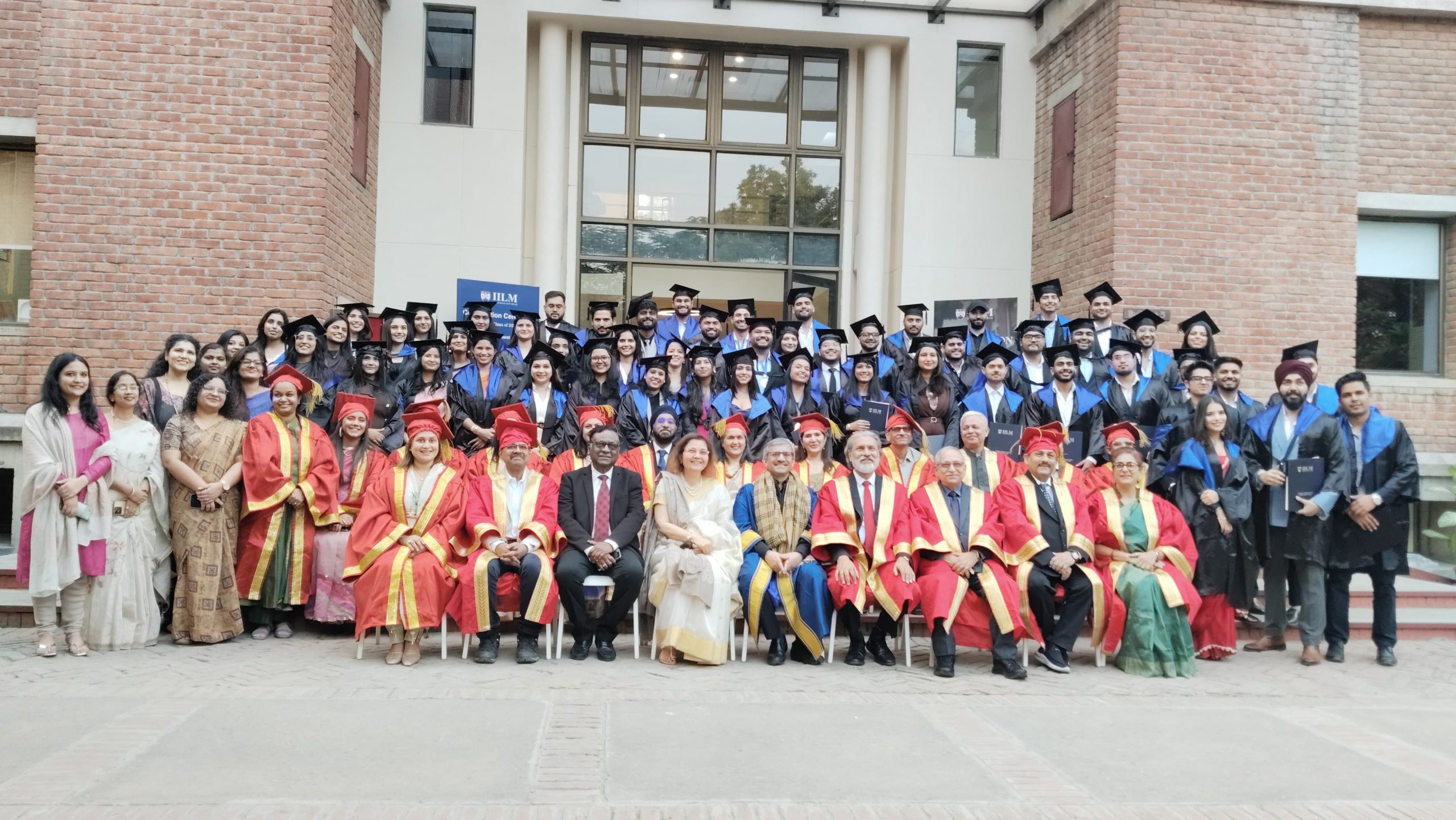
Addressing the students, Dr. Chaturvedi emphasized four core values for future leaders—purpose, ethics, empathy, and courage. The world is changing rapidly. To lead meaningfully, be purposeful in your decisions, be ethical at all times, empathetic towards others, and courageous in your aspirations.
Trust Yourself, Embrace Uncertainty, and Learn from Failures — Rajeev Dubey
Addressing the gathering, Shri Rajeev Dubey, Chairperson, Board of Governors, reflected humorously on the generational gap between senior leaders and the youth of today. My son told me bluntly that whatever I say may not appeal to young people. But the truth is, the world you are entering is far more uncertain, interconnected, and volatile than ours ever was. He stressed the importance of flexibility, citing global events and rapid technological changes. We live in a world where something happening thousands of miles away impacts our homes and workplaces. Adaptability is not optional—it is essential.
Sharing personal experiences from his administrative responsibilities, he advised students to trust themselves and draw strength from their past successes. When uncertainty surrounds you, trust yourself first. Remember the times you succeeded—those moments give confidence to move forward. He also highlighted the importance of teamwork, leadership, and recognizing strengths in others. A good manager identifies what each team member can do best. Look for the good in people—it takes courage, but it builds great organizations.
NEP 2020 Bringing a New Era in Higher Education: Dr. Vineet Joshi
Delivering the Convocation Address, Dr. Vineet Joshi, Secretary, Department of Higher Education, Government of India, spoke extensively about how the National Education Policy (NEP) 2020 is shaping the future of the Indian higher education landscape. He said the implementation of NEP is progressing steadily, bringing stronger industry linkages, improved research outcomes, and broader international collaborations.
Dr. Vineet Joshi highlighted the Apprenticeship-Embedded Degree Programme, where students spend two semesters working directly with industry partners. This initiative gives students real-world exposure and shifts their mindset from job seekers to job creators. It ensures that what they learn in classrooms connects meaningfully with workplace expectations.
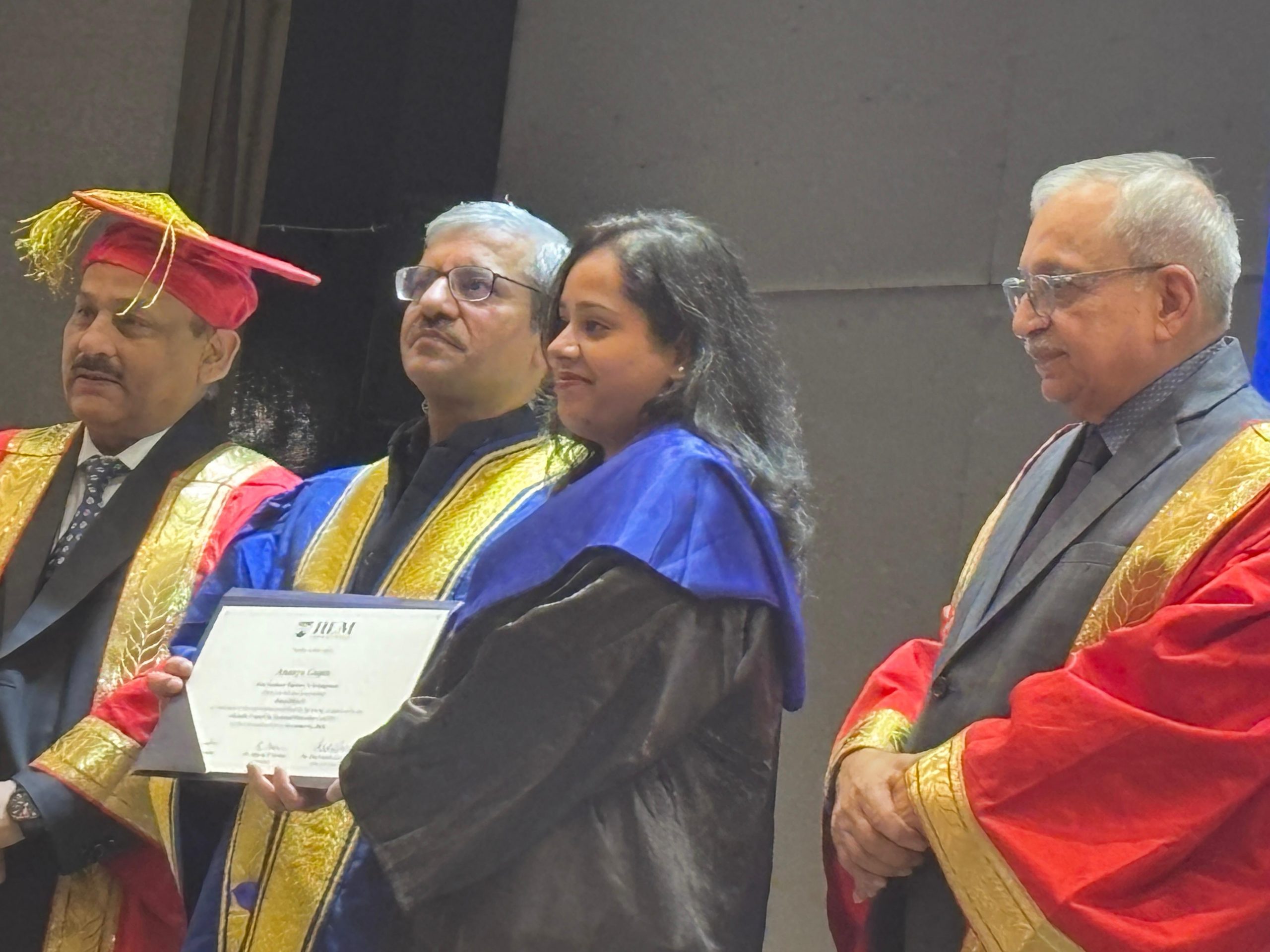
He emphasized the need for research that results in tangible societal solutions. Research should not remain just a paper. It must translate into innovation and usable outcomes—especially in areas like sustainability, technology, and economic growth. Dr. Vineet Joshi reaffirmed NEP’s goal of achieving 50% Gross Enrolment Ratio (GER) by 2035. We must bring more students from disadvantaged backgrounds into higher education and significantly increase women’s participation, particularly in STEM.
He highlighted ongoing national initiatives aimed at improving teacher training and academic leadership. Quality of education depends on the quality of teachers. Capacity-building programmes for faculty, principals, and vice chancellors are being implemented nationwide. He also detailed India’s growing presence in international education. Thirteen foreign universities have received approval to open campuses in India. Simultaneously, IITs and top Indian institutions are expanding globally—in Zanzibar, Dubai, and the UAE.
The Ministry has also launched the ‘Study in India’ portal to attract 500,000 international students in the coming years. Dr. Vineet Joshi concluded by reaffirming the national vision: NEP is building a globally competitive, inclusive, innovation-driven ecosystem that supports India’s goal of becoming a Viksit Bharat by 2047.
Institutional Achievements Showcased
Prof. Bigyan P. Verma presented the Annual Report of IILM, highlighting key achievements, including academic collaborations, student development initiatives, and mental well-being partnerships such as the “Your Dost” application. The report also outlined new research activities, distinguished awards, and ongoing global partnerships.
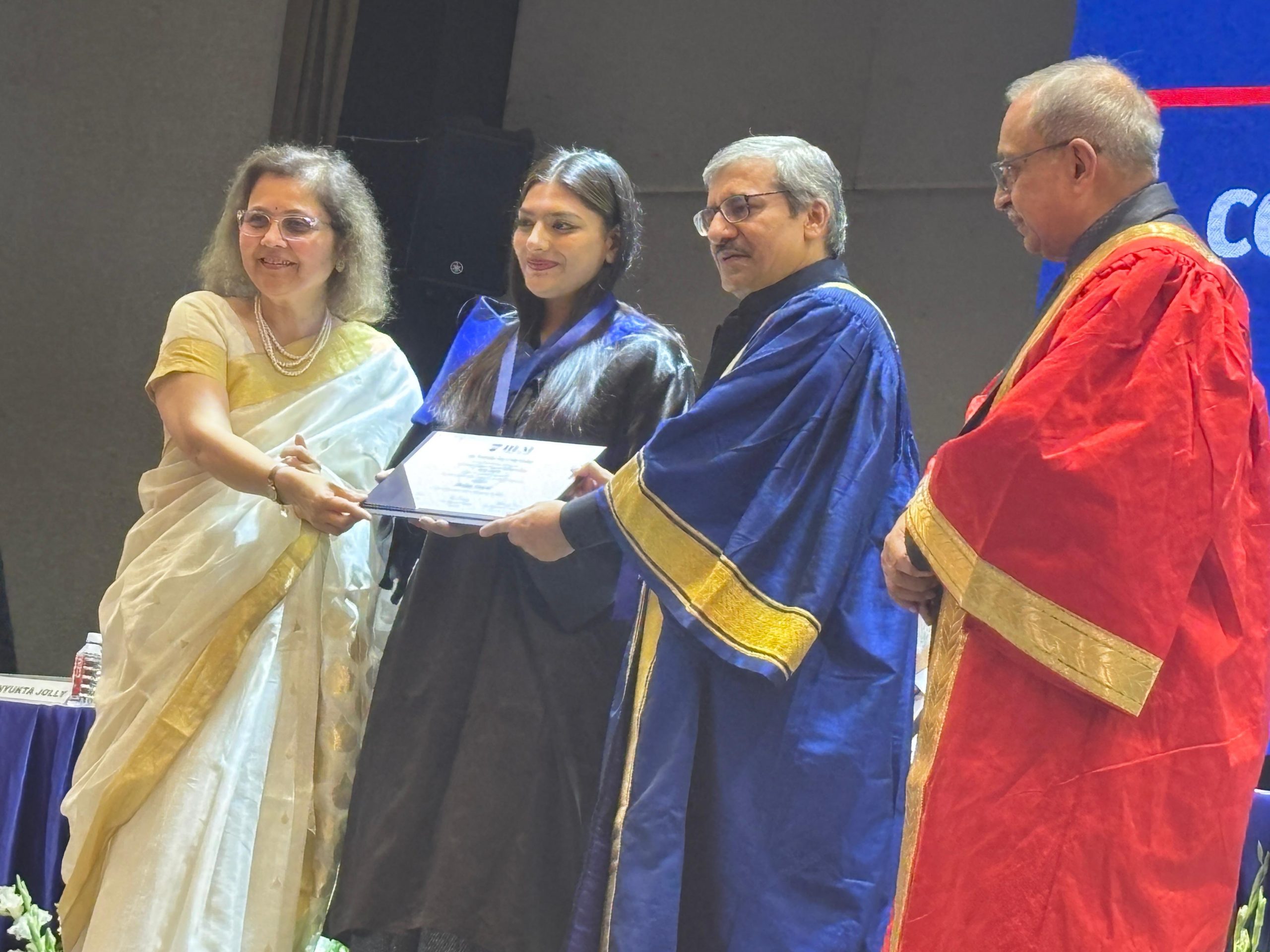
The convocation culminated with the distribution of diplomas, certificates of merit, and the prestigious Dr. Kulwant Rai Gold, Silver, and Bronze Medals, celebrating the academic excellence of the graduating cohort. The ceremony concluded with the National Anthem, followed by a High Tea where students, faculty, and families came together to share moments of pride and joy. IILM’s Convocation 2025 not only marked the academic accomplishments of its students but also reaffirmed the institute’s commitment to shaping responsible, future-ready leaders in an evolving educational landscape.

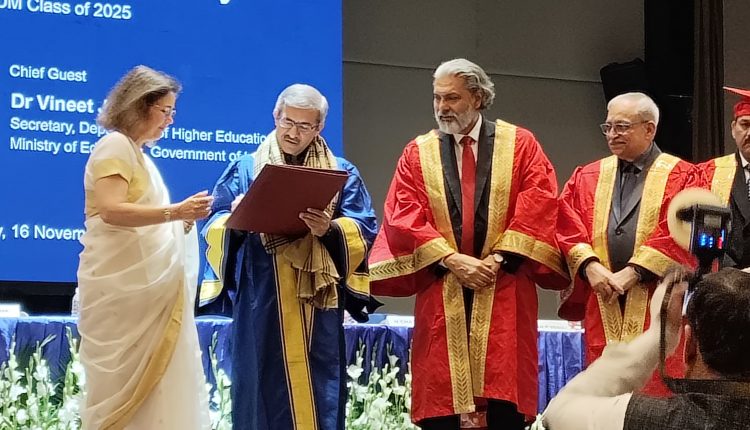

Comments are closed.